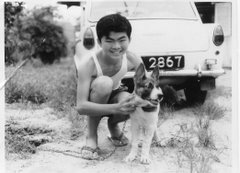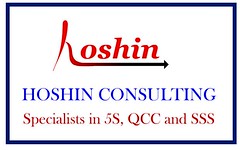Robin Chiang writes all the way from California. Coincidentally, many of the things Peter and I have blogged about featured in his younger days as well.
Dear Mr Lam,
I read your "Good Morning Yesterday" blog and would like to thank you for sharing your experiences. There are quite a few common points. I grew up in Singapore in the 70's (I was born in Taiwan) and did my NS in 84-86. I lived in Nanyang University where my father was a lecturer. In 82 we moved to Clementi, just 2-3 blocks from the Ulu Pandan Railway Bridge.
In NS I was in SAFTI, and then SMM (School of Military Medicine), and then posted to 30 SCE as an LCP medic. By then 30 SCE was based in Khatib Camp. I was in Charlie Coy for 7-months, then HQ coy. As a platoon medic in 85 I witnessed the last Bailey Bridge built by the SAF. I am quite familiar with many of the SAF points of interest.
After NS, I came to California for my univ and have not returned (except for short visits). 2 decades later I recall fondly my days in Singapore and am reading up on her history and finding out how ignorant I am. I hope the Min of Ed places a greater emphasis on teaching history to the country's youth. (emphasis LCS's)
Related posts:
1) The Ulu Pandan Rail Bridge
2) 30 SCE
3) SAFTI
4) Bailey Bridge
5) Nanyang University
PS: Please remember to vote for me for the OMY awards here.
Seiso is Cleaning (1) – The Importance of Seiso
-
The third ‘S’ in 5S is *Seiso*; and it simply means *Cleaning*.
*Example 1: Our beloved AR-15*
Many of us who have gone through NS (National Service) will ...





14 comments:
One must understand that throughout the 1970s and maybe now, the MOE emphasis on history is to stress the political aspects. I think they call the subject "Civic Knowledge".
I think I speak for many people of my generation when I say that in school, we hated history. It was only later in life that I realised that history is so interesting and important actually.
For example reading about some of the faous WW2 battles like Midway and Battle of Leyte Gulf, I read accounts of an entire fleet laying in ambush at the wrong place; just like those days when we had our army training.
Hi.. saw one of your old post ( posted on 22 Oct 2007) regarding Nanyang University.
Were you from Nantah?
No, I was not from Nantah. In the old days, Nantah grounds was quite famous for its classic Chinese archetecture and so popular with visitors and shutterbugs. I was from Spore U.
One day I spoke to an elderly German on the topic of History hoping that he could enlighten me a bit on European history. He mesmerized me with his extensive knowledge in this subject, covering many aspects of European History including religion. Being a retired man, he had time on his side and his lecture kept on going. I needed an excuse to get away, otherwise I would be steam-rolled over by his knowledge. Having said all this, I hope our MOE should seriously educate our young on this subject (presently being regarded by the public as a subject which have no economic value), lest we are looked upon by the world as 'frog in a well'.
But I think it is very difficult to teach history in an interesting way.
History can be interesting depending who the teacher is. In JC (PreU my time),I had Mr. Kopi Pillai who taught us Mayayan History until 1965. He taught World History. His approach was to treat us as adults and he gave both a historical account as well as a political science approach.
Then came Spore U. This History senior lecturer came to class, opened her lecture notes and started to read from her well-prepared text. No wonder my juniors asked me to pass them my lecture notes because in my junior's time, she did the same thing like one year earlier. No wonder my classmates either "potang lecture" or went to sleep.
I think today NUS is different and much better. I still remember my political science lecturer who was also a PAP MP. He got no time for his students because of politics. One day one of our freinds dedcided to see him at his room (which is now the Lee Kuan Yew School of ......). After knocking at the door, there stood a sleepy lecturer who was none other than the person I said earlier.
I also either "borderline" passed or failed my primary school history subject all the time. Still remember that they taught the history of Chinese dynasties like Sung, Ching, Huang...; and personalities like Shi Huang Ti, Parameswara, Kublai Khan, Genghis Khan, Admiral Cheng Ho, etc. And many, many years and dates to remember. That explains my poor result.
I always thought history is the most interesting subject you can study in school.
Humans like narratives and history, to me, is a series of narratives involving people, places and events.
The narratives show the best and worst in human and are lessons for us today.
Peter is correct to point out that the teacher who teaches History has to bring out the essence of subject, just like adding salt or spices to bring out the taste of food, failing which it can be a very boring subject, sending the class to sleep. My primary school form teacher, who also taught us history, was so engrossed in his illustration that he, on rare occasions, flung his watch onto the wall accidentally and tore a dollar note into two just to prove a point. How can I forget such a dedicated teacher or the subject he taught? On the the other hand, I could not remember the name of History teacher or his look during my secondary school days.
I think both content and teaching method (and they really shouldn't just emphasise names and dates!) are important. I loved history because of the content first of all. So by the time I had any teachers (and lecturers) who read from the book or made us underline important points, it didn't really make much difference because I already loved the subject.
I had history in primary school taught in Mandarin(!). My Mandarin wasn't great but the stories, myths and legends of old Singapore were exciting. But they don't have that nowadays. I have to buy for my son books about myths, legends and 'old' history of S'pore (pre-British) to 'educate' him myself.
In secondary school, we had history from Stone Age, ancient civilisations, through Renaissance, etc. That was very exciting, too. Again, they don't have that, which is a great pity. I do think learning about S'pore history is important but the history of the world is also important. Thus, I have to try to 'educate' my son about world history on my own too.
I remember studying about this thing called the Magna Carta and Charlemagne in sec 1 or 2. We simply memorize the paras. When the words words appear in the exam question, then happily regurgitate everything.
What I find quite absurd is that every now and then they discuss some issue in Parliament, somebody would suggest that we must teach in the school. As if our kids don't have enough things to study like that. No wonder all the traditional topics get sidelined.
From I observe, the Singapore education system is undergoing changes and transformation. No offfence to shoe TripleScience students or Pure Maths students, I find that from 197o onwards until the last economic recession of 1998, there was a strong push for engineers, engineers and engineers. So much praises were spoken about how engineering graduates (called systems engineers) were brought in to revamp our education system when Arts and Humanities graduates were critised (yes even by a cabinet minister) to be arty-farty type.
Could this not be the problem why there is a lack of understanding of the humanities and the disinterest on anything called "History"?
We did study a little on British History touching on how the Magna Carta was signed by King John. It was only recently that I watched an enacted documentary in the History Channel (cable tv) showing an indepth historical background to the signing of this vital document that leads to the birth of parliamentary democracy in Britain. This documentary I must say is captivating from beginning to the end.
Post a Comment